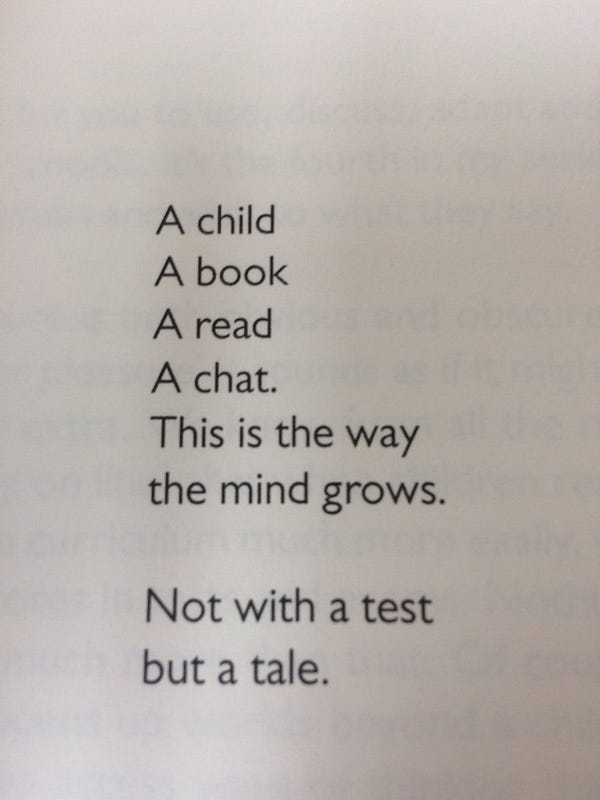Recalibrating Assessment
Can we be more ambitious and shift away from seeing it as a vehicle to judge kids?
It seems all over the world there is a drive to rethink assessment, motivated by the discomfort many have about the suitability of current assessment systems to promote the kind of learning kids need for the modern world, along with the disquiet felt by many about the effect continual high stakes assessment has on kids.
This tweet sums up the general gist of the discomfort in quite a nice way.
It’s assessment’s underlying agenda that needs recalibrating
What bothers me about much of this is that no-one seems to be addressing the purpose of assessment. In New Zealand, we have the NCEA (school leaving qualification) review happening which, despite officially being an attempt to place the focus on learning, seems to be driven mostly by misguided ideas about protecting the rigour and integrity of the knowledge and standards being assessed.
The qualifications organisation responsible for turning the review into reality (NZQA) is obsessed by this idea, continually raising the point that their statistical analysis says it takes three pieces of evidence to make a valid, reliable judgement of ability about student capability. Sure, this is probably correct. But, because the daily interaction between teachers and students is not seen as the source of valid evidence, the primary effect is that teachers and students will spend more time doing assessments ‘formally’ to generate the evidence being demanded.
There’s an agenda that drives assessment and all the systems and processes that are put in place for it, and it’s this: knowledge and standards must be protected, at all costs, and kids are judged in relation to how well they meet them. This is a great situation for the hot shots and culturally favoured, but not too flash for anyone else.
Anyone who thinks we can focus on learning by fiddling around with assessment processes, without addressing that agenda, is kidding themselves.
Recalibrating to focus on learning
We don’t need a revolution to do this. In fact, it’s something that should have been happening, in New Zealand at least, because the national curriculum says that assessment’s purpose is not protecting knowledge and standards and judging kids. In the section on assessment, it says, as it’s opening sentence
“The primary purpose of assessment is to improve students’ learning and teachers’ teaching as both … respond to the information that it provides.”
Note the symbiotic relationship there between learning and teaching, as well as the focus on continual improvement and responsiveness. Yes, knowledge and standards have a place there, but they’re not the whole point.
“Assessment for the purpose of improving student learning is best understood as an ongoing process that arises out of the interaction between teaching and learning.”
Ongoing? How can we make final judgements that protect the integrity of a standard if there is no end point?
But that’s the point, isn’t it. For learning to be the focus there can’t be an end.
Assessment for growth, not judgement
What’s the main thing are we seeking to protect and nurture in schools? For me, it’s the kids. Yes, knowledge and standards are important, but when the agenda of assessment is judgement, these are what get protected first and foremost at a system level.
Yet, here in New Zealand we have a directive to make learning the centre of assessment’s purpose and an explicit directive that positions that as a relational and ongoing process. For this to happen, assessment’s underlying agenda should be growth. When we assess for growth, what we signal is that protecting and nurturing the potential in all our kids is what school is for, not just the hot shots.
Assessment for growth brings relationships to the fore, breeds trust, and provides space for love and care, which is how real learning happens. Or, as Michael Rosen says so beautifully …
SMATA
A tool to help teachers, help students.
SMATA helps you to capture observations, understand learning trends, and encourage growth.








